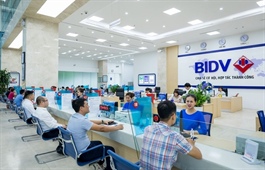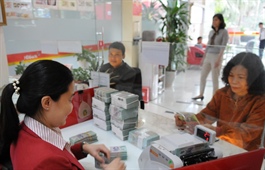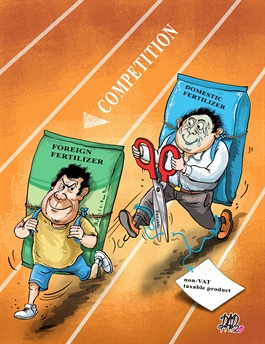Social media payment apps test Vietnamese waters
Social media payment apps test Vietnamese waters
Social payment, or money transfer via social media, is entering an early development stage in Vietnam as new players step in.
The social payment user interface of e-wallet PayMe. Photo courtesy of PayMe.
|
Payment service company PayMe last month launched its payment solution via chat boxes of popular social media like Facebook, Instagram and messaging app Viber.
A user can link his or her PayMe and Facebook Messenger accounts and create a link to send money to another person or request a payment. The receiver can pay using his or her bank card.
Home-grown messaging app Zalo had earlier this year launched a similar service allowing users to transfer money with a few taps on their phone, taking advantage of the company’s e-wallet service, ZaloPay.
A Zalo spokesperson had said in August that the social payment solution was a factor in the number of transactions on ZaloPay increasing by 300 percent year-on-year in the first eight months of this year.
Industry insiders say that the large number of social media users in Vietnam makes the country a market with large demand for social payment solutions.
Facebook has 50 million users in Vietnam, while other social media like Twitter, Google and Instagram combined have around 40 million. Zalo says it has 100 million users.
In this scenario, companies like PayMe are seeking a head start in the industry by offering social payment solutions to Facebook vendors and other companies with a large number of app users.
"We are working to provide services to nearly 10 partners, each of them having nearly one million users in their ecosystems, meaning we will immediately have six million users," said Le Hoang Gia, CEO of PayMe, which received the license for its e-wallet last year.
He said that the booming of social commerce in Vietnam, or the combination of social media and e-commerce, is key to the development of social payments. Vietnam’s social commerce market was estimated at $5.9 billion in 2018.
A survey by German statistics portal Statista in May 2019 showed that the penetration of social commerce among people 20-30 years old was over 51 percent.
Many Vietnamese social media users have gotten used to requesting more information about products and making orders via messaging apps, but they mostly pay with cash on delivery.
The goal of PayMe is to digitize and automate the social payment solution to complete this final step in the e-commerce system, Gia said.
Stiff competition in other segments of the e-wallet industry, such as MoMo seeking to be a super-app providing various different types of services and other companies like Grab and VinCommerce having established deals with payment firms or developed their own app, forces new players like PayMe to branch out into a niche segment with potential. For now, that is social payment.
Roadblocks exist
However, there are roadblocks facing development of this new payment channel. The Military Bank (MB) in 2018 launched a feature to allow users to transfer money via Facebook Messenger using only their phone number. However, it decided to stop focusing on this payment solution and switched attention to developing its own payment app.
Vu Thanh Trung, director MB’s digital bank department, said security was the biggest roadblock for this type of payment. Many social media users in Vietnam have reported receiving messages from accounts of friends and family members requesting payment. It turns out often that the person asking for money is a hacker.
As hackers often use links to steal social media accounts, people get suspicious when they receive a social payment link, he said.
"When it comes to transferring money on social media, even young people become cautious."
Most banks have already developed their own payment apps that are fast and convenient with a high degree of reliability and security, so many companies have tended to neglect the social payment segment, Trung said.
























